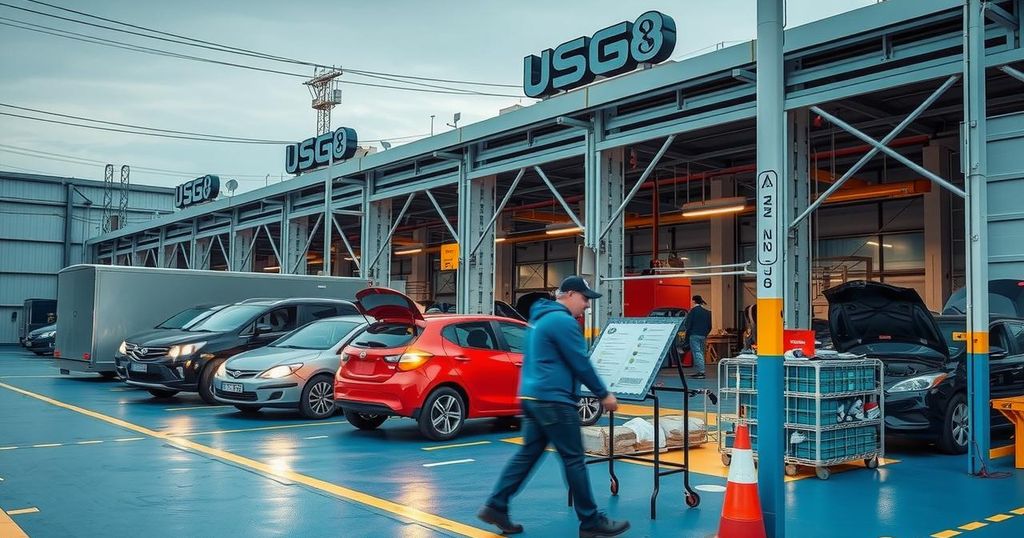Brazil Halts BYD EV Factory Operations Due to Alleged Labor Violations

Brazil has suspended operations at BYD’s upcoming factory due to reported “slavery-like” conditions, where workers faced inadequate living arrangements and restricted rights. The move underscores serious labor law violations as authorities intensify scrutiny over working conditions in the construction sector. BYD has begun transferring affected workers to hotels and claimed to have reviewed conditions extensively while advocating for improvements.
Brazil has halted operations at BYD’s factory site amid allegations of inhumane working conditions, characterized as “slavery-like” by prosecutors. The factory, anticipated to commence operations by March 2025, was to be BYD’s inaugural electric vehicle (EV) manufacturing plant outside Asia. Workers, subcontracted through Jinjiang Construction Brazil, reportedly resided in substandard facilities in Camaçari city, where they faced appalling conditions such as sleeping on bare beds and sharing cramped bathrooms with numerous individuals, prompting early wake-up calls to prepare for work. The Brazilian labor authorities, known as the MPT, indicated that these living conditions reflect serious exploitation, aligning with their definitions of forced labor and debt bondage.
BYD, a prominent player in the global EV market, has vocally acknowledged the situation, stating they have relocated the affected employees to hotels. The company claims it performed thorough assessments of living and working conditions for subcontracted workers and had repeatedly urged Jinjiang Construction to implement necessary improvements. Since its establishment in Brazil in 2015 with a factory in São Paulo, BYD has progressively enhanced its presence, notably with plans to invest significantly in establishing a comprehensive EV production facility in the country.
The geopolitical landscape surrounding the EV sector is also affected by international trade tensions. Despite robust domestic demand bolstered by governmental incentives encouraging a shift from gasoline vehicles to electric ones in China, an increasingly negative global perception of the Chinese government’s support for local manufacturers is emerging. Notably, significant markets such as the United States and the European Union have instituted tariffs against China’s EV imports, with further tariffs anticipated under the incoming administration of U.S. President-elect Donald Trump.
The allegations against BYD’s factory in Brazil shed light on broader issues concerning labor practices within the construction and manufacturing industries. Brazil has stringent laws against slave labor, defining it as forms of forced labor and situations that undermine human dignity. The situation at BYD’s site is not an isolated case but part of a larger trend wherein companies must address labor conditions within subcontracted operations to comply with legal standards and enhance corporate responsibility. Additionally, the global electric vehicle market is highly competitive, with manufacturers like BYD striving to expand their markets in regions outside of China. However, their progress may be impeded by growing international scrutiny and backlash against perceived unfair trade practices, particularly as governments impose tariffs to protect local industries from foreign competitors.
The closure of BYD’s factory in Brazil represents a significant response to deplorable labor conditions reported by workers at the site. The Brazilian labor authorities’ intervention underscores the importance of ethical labor practices within global supply chains. As BYD seeks to enhance its footprint in the global EV market, addressing human rights issues and improving working conditions will be crucial in maintaining its reputation and complying with international standards.
Original Source: www.bbc.com





